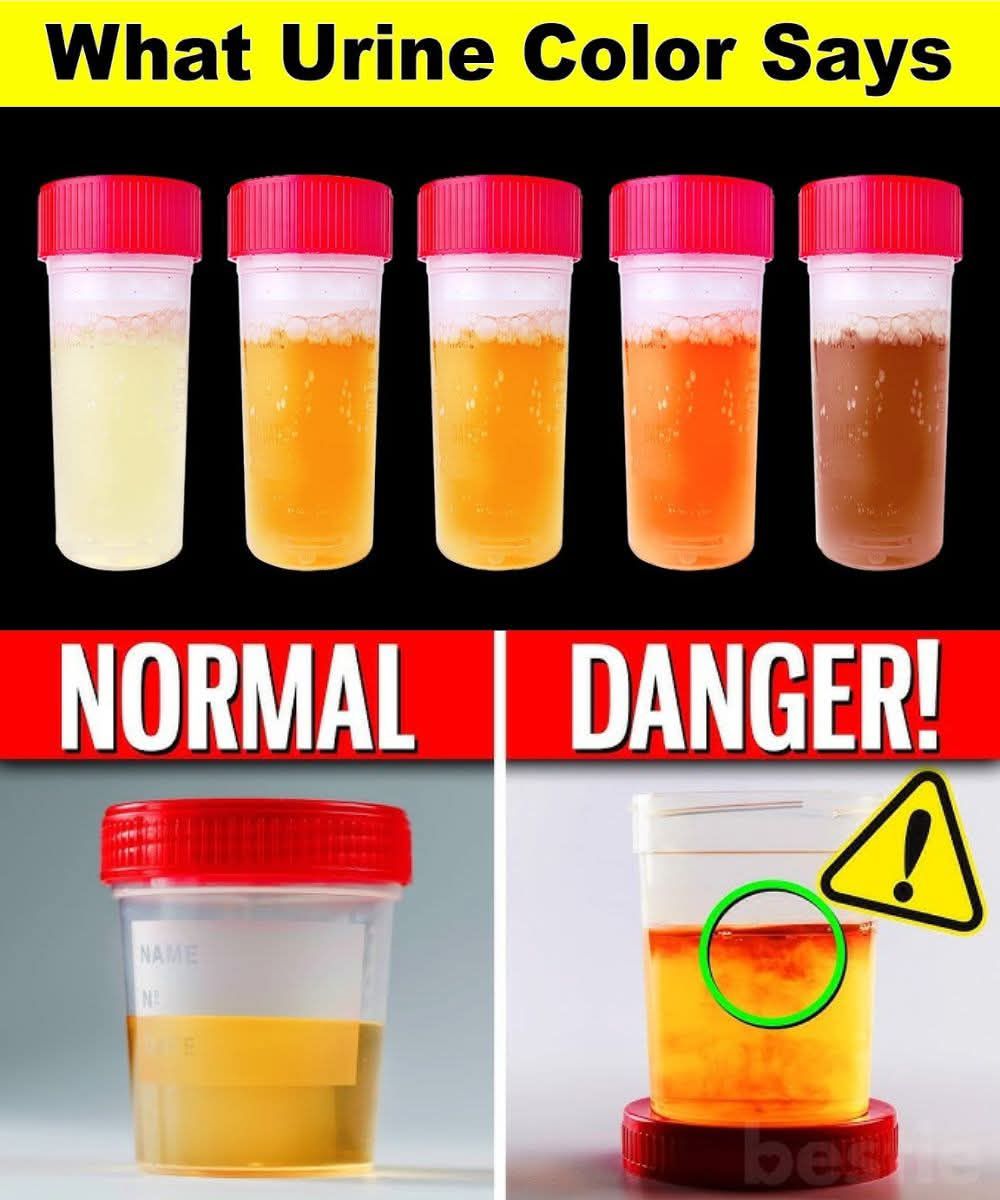What You Should Do
Increase your water intake throughout the day.
Be extra mindful after exercise, during hot weather, or when consuming diuretic beverages like coffee or alcohol.
Staying hydrated not only prevents kidney strain but also supports digestion, energy levels, and skin health.
Orange Urine: Dehydration or Medication Side Effect
Orange-colored urine can be surprising and sometimes concerning. In many cases, it is linked to dehydration or the use of certain medications.
Possible Causes
Severe lack of water.
Medications such as rifampin (an antibiotic), sulfasalazine (used for arthritis), or phenazopyridine (for urinary discomfort).
High intake of foods or supplements rich in beta-carotene or vitamin C.
When to Seek Medical Help
If orange urine is accompanied by pale stools or yellowing of the eyes and skin, it could indicate a problem with the liver or bile ducts. In such cases, medical attention should be sought immediately.
Pink or Red Urine: Could Be Food or Something Serious
Red or pink urine can look alarming, but not all causes are dangerous. Sometimes, this color results from eating naturally pigmented foods such as beets, blueberries, or rhubarb.
When It May Indicate a Health Issue
If food is not the cause, red or pink urine can mean there is blood in the urine (hematuria), which may be related to:
Urinary tract infections (UTIs)
Kidney stones
Prostate conditions in men
Bladder or kidney disease
📌Thank you for reading the article.
